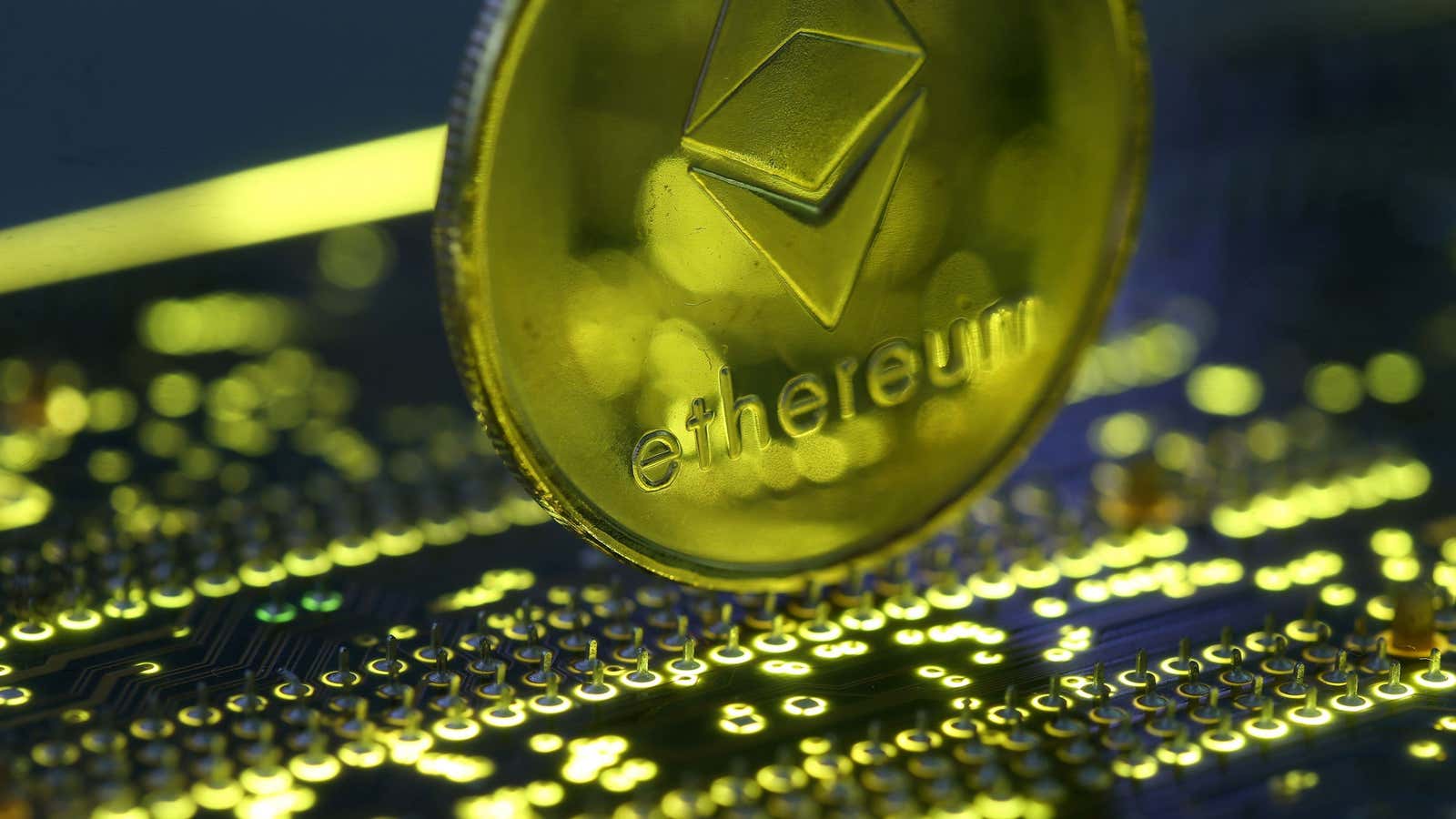Last week, the major cryptocurrency startup Coinbase acquired a company called Paradex. This company is known as a “decentralized exchange” (or a “DEx,” if you want to be down with the crypto cool kids). This new type of exchange is said to be a safer way to trade crypto coins—which is pretty useful, given that over $4 billion worth of cryptocurrencies have been stolen from exchanges between 2011 and 2017, according to a Reuters estimate.
What makes a decentralized exchange decentralized? First it’s helpful to understand what the status quo for a normal crypto exchange is. It works like this: A customer wires money to an exchange’s bank account, and then waits a few days for those funds to be credited to her exchange account. Once the funds are in, she can buy or sell crypto coins with those funds. During this time, the exchange holds her funds—whether in fiat or crypto currency—and is responsible for keeping them safe. When she’s done trading, she can also swap those funds into fiat currency and have that amount wired back to her original bank account.
The chief benefit of a decentralized exchange is that a trader doesn’t have to entrust her funds to anyone. Instead, she trades directly with another party, using a blockchain to finalize the operation. She holds her funds in her digital wallet and trades them using the decentralized exchange to find a buyer or seller for her coins. This eliminates custody risk, which is the risk that something bad happens to the customer’s funds while the exchange operator is in charge of them. That includes losing funds to hackers or having to trust that the operator isn’t doing anything suspicious with your money.
Both of those scenarios have happened regularly in the short life of the crypto exchange world. Famously, Mt. Gox, once the world’s largest bitcoin exchange, was hacked for hundreds of millions in 2014. Last year, two of the world’s biggest exchanges, both based in China, used $150 million of idle client funds to buy wealth-management products, triggering an investigation by the central bank.
Coinbase says its purchase of Paradex will pave the way for its customers to trade “hundreds” of tokens in the future. Given Coinbase’s substantial customer base of over 20 million users, this could lead to a significant uptick in activity in the token markets.
But this raises the question: If an exchange is decentralized, how could a corporation have acquired it? If the very nature of a DEx is that it disperses trading activity, what exactly did Coinbase buy?
It’s partly down to semantics. Critics would be correct to say that Paradex is indeed a singular, centralized entity. This entity is responsible for taking orders from customers and matching up buys and sells. It takes a cut of the trade for doing this work. It’s doing stuff “off-chain” in crypto parlance, meaning those trades don’t interact with a public blockchain.
It’s an approach that’s possible because Paradex is built on another protocol called 0X, which is a kind of open-source toolkit for people to build decentralized exchanges on ethereum. Ethereum may be mostly known for being the second-most-valuable cryptocurrency, but it also allows users to program applications on it, giving rise to decentralized apps like CryptoKitties or, indeed, token exchanges. Someone can use 0X to form an entity that accepts and matches orders for trades from customers, ultimately settling them on the ethereum blockchain.
Such an entity is called a relay, and that’s what Paradex is. Relayers run their own order-books and then relay matched orders to a blockchain to be filled. Other decentralized exchanges like EtherDelta or Kyber take different approaches, some performing more actions on the blockchain.
But a decentralized exchange like Paradex outsources the actual payment and fulfillment of a trade to the ethereum blockchain, which is the decentralized bit. Customers of a decentralized exchange never actually send their funds to the exchange to be traded, which is the case with traditional crypto exchange. This is “on-chain” settlement, in the language of the crypto world. So DEx customers hold their own funds in their own wallets, and only move the funds out when the trade is settled.
The downside to a DEx is that it’s limited to trading between crypto tokens, so you can’t trade between a token and, say, the euro—although so-called stablecoins that mimic fiat currencies are being developed at a feverish pace. Customers are also wholly responsible for securing their funds. That means your wallet could still be hacked (in some cases just by using your phone number), or, more likely, you could lose or forget your private key. And if that happens, there’s no one to blame but yourself.
So there’s no real contradiction between a big centralized exchange operator like Coinbase acquiring a decentralized exchange like Paradex. It’s really Coinbase acquiring a new way to get crypto traders to pay one another. Time to bone up on your private-key security routines.
